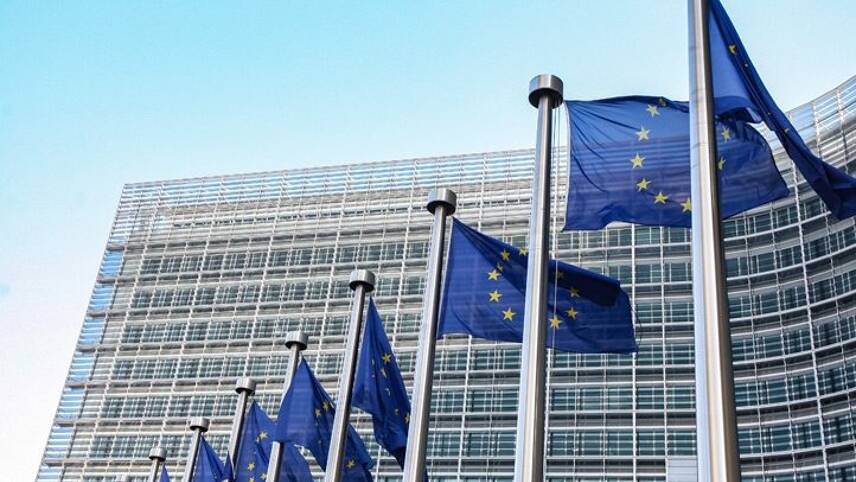Register for free and continue reading
Join our growing army of changemakers and get unlimited access to our premium content

The proposal for the emissions target was laid out by the European Commission on Tuesday afternoon (6 February), confirming that the bloc intends to work towards a 90% reduction in all greenhouse gas emissions, relative to 1990 levels, by 2040.
It will be up to the next Commission to formally adopt the target after the EU elections this summer. This will likely be a challenging process given previous opposition to the ‘Fit for 55’ target – a 55% reduction in emissions between 1990 and 2030.
Policymakers were told in June by the EU’s scientific watchdog to target between 90-95% cuts by 2040, without leaving any loopholes for specific sectors or any kinds of non-carbon greenhouse gases.
The EU cut emissions by 30% between 1990 and 2021, for context.
Delivering the new 2040 target will require a significant acceleration of work already underway.
The EU sees power decarbonisation as a key lever. The target is supported by an ambition to cut fossil fuel use in the energy sector by 80% between 2021 and 2024 – a feat that can be achieved by improving energy efficiency and scaling nuclear and renewables.
Carbon capture will also play a role. The Commission is proposing that member states collectively strive to capture 280 million tonnes of CO2e annually by 2040, up from 50 million tonnes in 2030.
The International Emissions Trading Association (IETA) is pushing for clarity on which kinds of carbon capture the EU is strategically prioritising and is calling for the bloc’s policymakers to look more seriously at man-made carbon removal technologies at heavy industrial sites.
“Carbon markets must change to deliver net-zero as the mechanism as we know it will not take us there,” said IETA’s EU policy director Julia Michalak. “It is crucial that the right policy incentives are introduced with greater urgency for removals technologies to develop at scale.”
Less has been said at this stage on transport, buildings and agriculture. Ministers have been reluctant to set out sector-specific goals for agriculture following riotous farmer-led protests in Paris this year, accusing policymakers of failing to support the sector’s economic success.
Green economy reaction
As we await more details and the final adoption of the 2040 climate target, Michalak called the top-level ambitions “revolutionary” and said the target can “reinforce the EU’s position as a global leader on climate change”.
Climate Group Europe, which convenes hundreds of businesses and dozens of cities across Europe, has similarly called the target “bold”.
Climate Group Europe leader Jeroen Gerlag said: “This move sends a strong message that the bloc is working towards a more sustainable future for all people.
“We know from Climate Group’s RE100 initiative that companies sourcing all their electricity from renewables represent a growing number of climate-forward organisations that want certainty in their EU operations. Supporting them in the transition to cleaner energy sources makes economic sense while being the better option for our global climate.
“After the elections in June it will be crucial that the Commission puts further plans in place to meet these targets and ensure the EU remains on track for net-zero emissions by 2050.”
Transport & Environment’s climate director Sofie Defour echoed this call for swift implementation and further details. She said: “Industry players at home and outside of Europe can turn to the EU for production and sales of green tech, as they can be assured of a growing market and predictable demand.
“But this headline goal will fall flat if it doesn’t come hand in hand with a phase-out of fossil fuels and new laws cracking down on the oil majors.”
Greenpeace climate and energy campaigner Silvia Pastorelli similarly said the EU must avoid “creative accounting” and cannot shy away from “an end to fossil fuels and a plan to finally tackle farm emissions”.


Please login or Register to leave a comment.